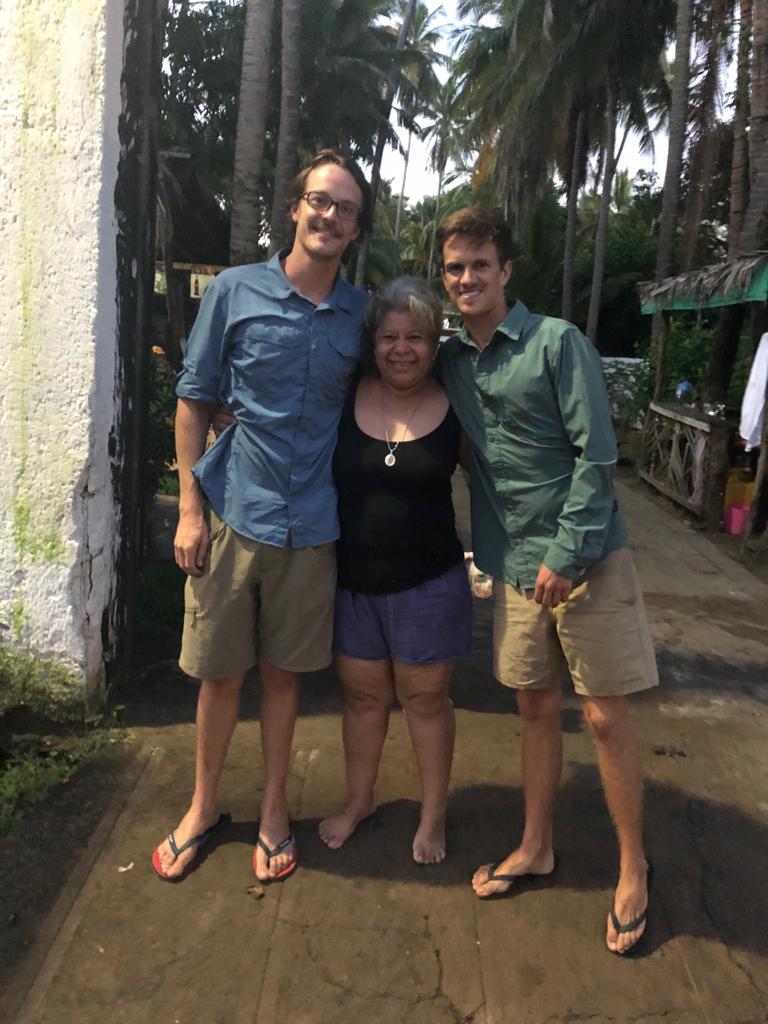Formidable Kindness
Intipucá, El Salvador
2,708 miles from San Francisco
A 12-year-long civil war that achieved nothing. A country whose government tries actively to gain additional publicity for being dangerous solely to receive, and subsequently pocket, foreign aid. A place where gang violence emanates from urban areas and creeps into the rural countryside. A public education system in shambles. Where unreasonably high tax rates paid into funds that disappear into thin air. Where rent and energy rates cause the vast majority of families to run a huge deficit every month, despite their best efforts.
These are the issues that Adela confronts daily. As with many people we’ve met, we were deeply taken by the adversity that she faces, but what left us in absolute disbelief was her disposition in spite of it. We’ve been driving south for more than three months and have been extremely fortunate to encounter more interesting and good-natured people than we can count. Adela, however, exists on another plane. From the moment we met her, her warmth and kindness made us feel welcome, a feeling we’ve come to realize is vital when tent-camping on a stranger’s property in a foreign land. From when we arrived at her establishment, battered and tired from a heavy storm the previous night, Adela gave us the sort of affection usually reserved for grandmothers spoiling their favorite grandchild. Right away, we were “hijo” and “querido.” Within minutes she knew our names and could tell us apart, overcoming the best efforts of our increasingly similar haircuts and mustaches.
Thus, the conversation we had with Adela shifted quickly from the topic of broader Salvadoran suffering to how the hell she can be so radiantly happy in spite of it. We asked her point blank, “¿con todo eso, cómo puedes ser tan amable a todos? ¿Cómo puedes ser tan felíz cada día?” With all that (adversity), how can you be so kind to everyone? How can you be that happy every day? What we learned moved us deeply and prompted us to reflect on how much anxiety fills the average life in the US, where much of the population’s worst problems hardly amount to the easiest of Adela’s daily challenges.
Adela’s philosophy on happiness is simple. On her struggles, she said “si les doy importancia, no se terminan.” “If I give them importance, they don’t end.” She acknowledges that her road is not easy, but recognizes that self pity has no value. In fact, she cures stress by dedicating herself to making other people as happy as possible. She told us a story, delivered most humbly, that when she walks through her small town of Intipucá, she often feels like a dignitary or wealthy person. People throughout the pueblo lean, smiling, out of windows and shout greetings from front stoops. She recently asked her daughter, “I’m just a poor and insignificant person, why are they treating me this way?” Her daughter responded frankly, “It’s because of how you treat people. How generous you are, and how much love you give.” Just telling us this clearly made her feel as though she’d violated a personal commitment to humility, but we were grinning; filled with joy that the community recognized her brilliance.
Just as the conversation seemed to near its end, we saw tears well up in Adela’s eyes. She had told us previously that she, at no more than 5 feet tall, lost her confidence when she spoke while seated. So there we were, David and I sitting at a table while she stood before us, as if delivering a sermon. It was clear, despite a brief pause, that she wanted to share something else. And as the tears made their way down her face, she opened up to us. While most everyone she encounters appreciates her, her husband does not. Their campground/hostel is also their home, and she told us that his reaction towards her hospitality is most often indignant. He feels envious of the attention that she gives her guests. Of the joy she gets from spreading happiness and comfort. He interprets her affection for guests as a reduction in the love she feels for him. Adela feels deeply conflicted as a result, but her resolve remained strong. She told us firmly that she won’t change, no matter what. She has modeled her life to mirror that of Jesus. He gave without asking for anything in return. He did the unthinkable for the sake of others. She wants to do the same, and no one will stand between her and that. The topic was deeply personal, but sharing it was clearly palliative for Adela. She looked strong and resilient upon finishing her story. We, meanwhile, were left with tears in our eyes and lumps in our throats.
The period since having this experience with Adela has been filled with much reflection. How can one person stand so strong in the face of societal, economic and familial adversity and not only be utterly selfless, but incredibly dignified? How can the best pupusa chef in this small, Salvadoran town be among the strongest people we’ve ever met? One thing is certain: succumbing to stress, to worries and to sadness is a choice. Adela proved that to us, and proves it to everyone she meets.
Meeting people like her is why we are on this trip.
David and I with Adela, after she woke up at 5am to see us off.


